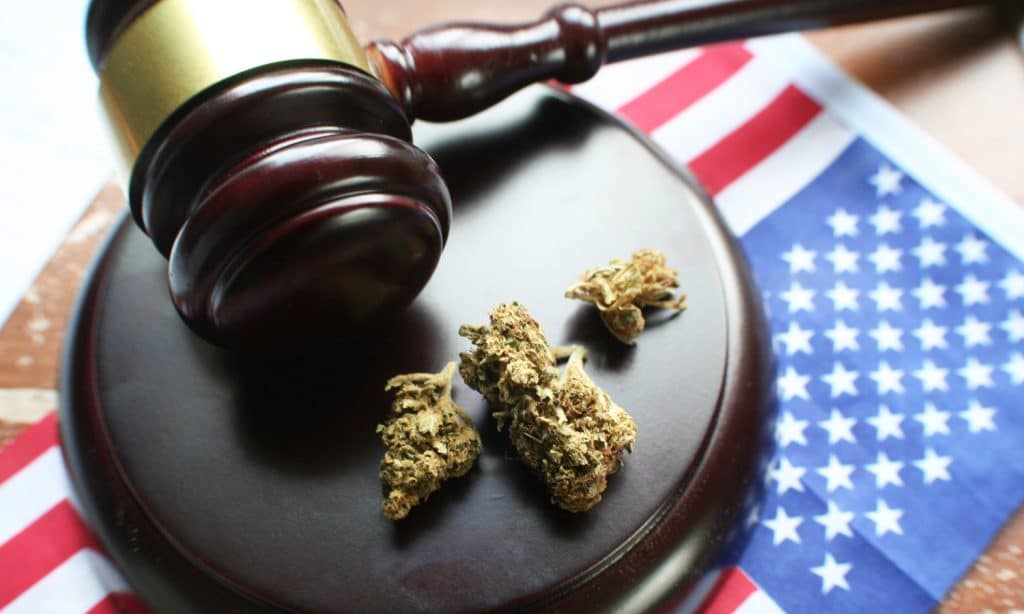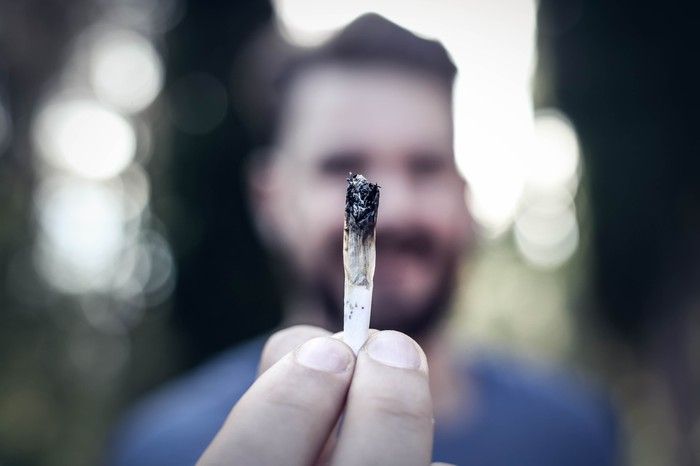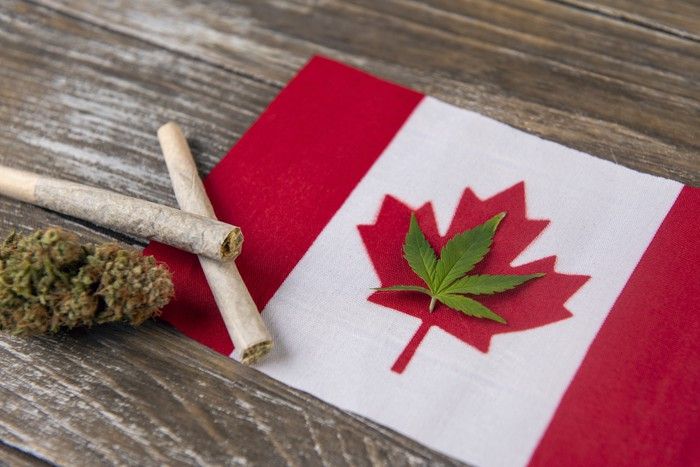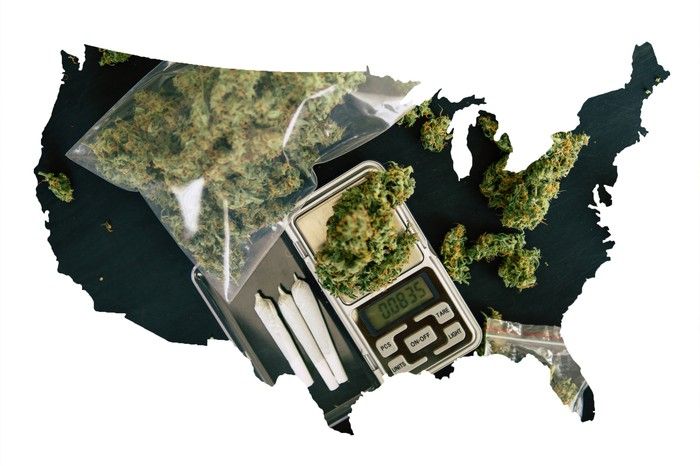Three U.S. presidential candidates have used cannabis — what plans do all frontrunners have for pot?
Three U.S. presidential candidates have used cannabis — what plans do all frontrunners have for pot?
Fri, 10/25/2019 - 16:45
Posted in:
“We not only need to legalize but we also need to pursue experiments," Democratic presidential candidate Pete Buttigieg said recently
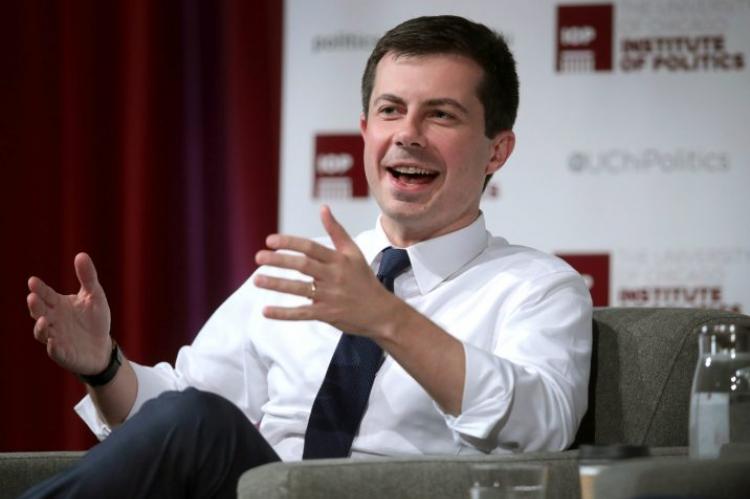
U.S. Democratic presidential candidate Pete Buttigieg says he’s used marijuana and thinks Americans should be able to do so legally.
The Associated Press reports the confession came out when the 37-year-old mayor of South Bend, Indiana and military veteran spoke to reporters outside a legal pot shop in Las Vegas.
“I have. A handful of times a long time ago,” he said, adding that people stigmatize the industry because of antiquated beliefs.
“When you go into a place like this, it almost reminds you of an Apple store how tidy and carefully it’s laid out, knowledgeable employees and a legitimate business that still struggles because federal policy hasn’t caught up,” he said.
Buttigieg is the third presidential candidate to admit using cannabis — here’s what all of the frontrunners have to say about marijuana.
What has Pete Buttigieg said about cannabis?
Pete Buttigieg has federal level plans to legalize cannabis, eliminate jail time for drug possession and reduce sentences for other drug offense, which will be applied retroactively.
Harvard University campus police also caught him smoking the butt end of a joint, but let him off with a warning. He said it inspired him to expunge past convictions, pointing to how Black Americans are
disproportionately arrested for marijuana possession.
“We not only need to legalize but we also need to pursue experiments, knowing the racial disparity and lives that have been ruined by sentences over marijuana possession,” Buttigieg told
FOX News.
What has Donald Trump said about cannabis?
U.S. President Donald Trump currently allows states to set their own marijuana policies.
“We’re going to see what’s going on. It’s a very big subject and right now we are allowing states to make that decision,” Trump said when asked about cannabis in a press conference on Aug. 30.
“A lot of states are making that decision, but we’re allowing states to make that decision.”
While his stance has changed on the topic, telling FOX News in February legal cannabis is “a real problem” despite advocating for the legalization of drugs
in 1990, Trump’s opinion has remained relatively stable recently.
Trump and the senate also passed a bill to prevent the Department of Justice from getting involved in state-legal cannabis programs.
What has Elizabeth Warren said about cannabis?
Elizabeth Warren is pro-cannabis legalization.
The Democratic candidate’s
campaign site reads, “We need criminal justice reform and we need it now. That means ending racial disparities in our justice system … It means comprehensive sentencing reform and rewriting our laws to decriminalize marijuana.”
Though, like Trump, her position on pot has also been inconsistent. Warren was opposed to legalizing recreational cannabis in 2011, during her first Senate campaign.
But since Massachusetts legalized recreational cannabis in 2016, her stance has been consistently progressive.
She has since signed the bill senate passed to block interference from the Department of Justice, as well as co-sponsoring bills like the Marijuana Justice Act that quell talks of prohibition and the CARERS Act, which protects medical marijuana users.
What has Joe Biden said about cannabis?
Democratic candidate Joe Biden supports decriminalizing cannabis, saying, “nobody should be in jail for smoking marijuana,” during a June campaign stop in
New Hampshire.
Campaign spokesman Andrew Bates told
CNN Biden also aims to automatically expunging prior criminal records for marijuana possession “so those affected don’t have to figure out how to petition for it or pay for a lawyer.”
“He would allow states to continue to make their own choices regarding legalization and would seek to make it easier to conduct research on marijuana’s positive and negative health impacts by rescheduling it as a Schedule II drug (which would let the Food and Drug Administration oversee cannabis),” Bates said.
Though the former vice president and military veteran has not supported legalization in the past.
He was against legalization in
1974, a view he maintained in 2010, according to the
Marijuana Moment, calling cananbis a “gateway drug.” He was in favour of creating the 1989 Office of National Drug Control Policy and drafted the 1994 bill that led to America’s current laws that jail non-violent drug offenders. Biden also said cannabis dealers should get the death penalty.
What has Bernie Sanders said about cannabis?
Bernie Sanders has fought for cannabis legalization for decades — he also admitted to trying a join before.
“I smoked marijuana twice and all I did was cough my guts out, so it didn’t work for me,” he said during a rally in
Las Vegas.
Despite the sore lungs, the democratic candidate advocated for cannabis legalization in his last run to be U.S. president and also filed a
first-of-its-kind bill to senate request the end of federal cannabis prohibition.
“Right now, marijuana is listed by the federal government as a Schedule I drug—meaning that it is considered to be as dangerous as heroin. That is absurd,” Sanders said at George Mason University during a 2015
rally.
“In my view, the time is long overdue for us to remove the federal prohibition on marijuana.”
He has signed a number of bills to make cannabis more accessible and stop federal authorities from implementing more restrictions.
Sanders did more of the same in 1995, co-sponsoring a bill to legalize medical marijuana at a federal level and co-sponsored three iterations of a bill that ensure hemp did not share the same definition as cannabis.
He also recently co-sponsored the Marijuana Justice Act.
What has Kamala Harris said about cannabis?
Democratic Candidate Kamala Harris has advocated for cannabis legalization — and has also openly admitted to smoking a joint in college.
“It was a long time ago,” she said during a radio interview with
The Breakfast Club.
“It gives a lot of people joy, and we need more joy in the world.”
Harris has called for legalizing recreational cannabis and expunging non-violent cannabis offenders, co-sponsoring the Marijuana Justice Act and the SAFE Banking Act, which aims to protect bank working with cannabis businesses from any punishment by the federal government.
“Decriminalizing marijuana at the federal level isn’t just the smart thing to do, it’s also the right thing to do. We can’t keep repeating the same mistakes of the past. Too many lives have been ruined by these regressive policies,” she wrote in a tweet.
While she is now a staunch advocate for legalization, the former San Francisco district attorney and California attorney general opposed the idea in her past.
She had a reputation for being tough on crime in both roles, calling legalization a “flawed public policy” and when asked about her opponent’s pro-legalization stance during her California re-election run
in 2014, she laughed and nodded, saying “He’s entitled to his opinion.”


